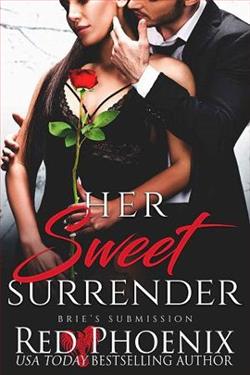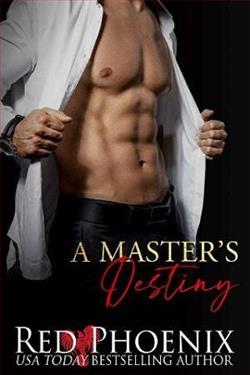Page 56 of Dreams of Joy (Shanghai Girls 2)
Oh, May. I shake my head. She mentions her friend Violet. Violet is my friend! She’s been my only friend apart from my sister. And then there’s the bit about t
he dog. I tell myself that Violet was just being kind to my sister, and that I can bear. But who is this Martin—the special friend, not the damn dog? Doesn’t May realize she’s a widow?
I know the real reason for these words. They’re to get back at me. I’ve been writing May regularly and she’s been deliberately silent. I don’t blame her. I’m here with Z.G. and she isn’t.
“You must write to me of your new life,” Joy continues reading. “Tell me about your father. I long to hear of your time together.” Joy doesn’t have to read this part aloud, but she does. It seems this letter has brought back some of her anger at May and me, and she’s always known how to drive a wedge between us. “Please write to me …” Joy looks up from the letter, glances at the faces around her, and says, “It ends with congratulations on our bumper harvest.”
I have no idea what May wrote, but I’m positive it wasn’t that. Joy’s eyes remain hooded as we walk to the canteen, and she’s quiet throughout dinner. After the meal, Joy comes back to the villa for her bath. These evenings have become a ritual I look forward to. Some nights Kumei and Yong—having gotten over their initial reticence—sit on stools in the kitchen near us, and we all chat, drink tea, and let the hard work of the day ease out of our bones. Ta-ming sits on the floor plucking the strings of a violin. From what I’ve learned, his father was educated. The violin—one of only a few of the landlord’s personal possessions not destroyed or confiscated during Liberation—belongs to Ta-ming now. Sometimes he picks at the violin strings, as he is now, or he’ll hold it like an erhu—upright in his lap—and run the bow across the strings. It sounds terrible but not as bad as some of the military marches we hear over the loudspeakers.
Usually when we’re together Joy lets down the walls that surround her. That blue part is still at her core, but some nights she laughs, tells jokes, even gossips. It’s times like those that I feel closer than I ever have to my daughter—as though we’ve made the transition from mother and daughter to friends—but tonight she’s unsettled. I shoo Yong, Kumei, and Ta-ming out the door. I sit on a stool a short distance from the tub and watch as Joy scrubs her skin as though somehow that will cleanse her soul. If I can talk about my mistakes and failures, maybe she’ll start to understand she has to forgive herself. My biggest failures have to do with May, and Joy has always been right in the middle of that.
“I haven’t always been the best sister,” I say, trying to sound as conversational as possible. “I’ve often been impatient with May. I wasn’t as understanding as I could have been. Z.G. has also been between us for twenty years. I look back and see how blind I was. I loved him, but he loved May.”
“You’re here now,” Joy says in benign resignation. “He’s coming back for you. The two of you can still be together.”
Waa! I’ve thought this myself. Z.G. will come for me, we’ll go to Canton, we’ll stay in a hotel, we’ll … But for Joy to say that?
“I haven’t been a good sister,” I repeat. “Since returning to China, I’ve had a lot of time to think about how hard it must have been for May all those years—”
Joy shakes her head, not wanting to hear this.
“You don’t have to like it, but it’s the truth. I love you and you’ll always be my daughter. That must have been very hard for May. You can see that, can’t you?”
“I can, but why would either of you want me? Why would anyone want me?”
She really is still such a child, needing proof of my love and her value. “Because you’re smart. You’re beautiful. You have many talents—”
“Like what?”
“You were able to act from a very young age. You were good at Chinese language and calligraphy. Now I see you were born with a talent I didn’t recognize until recently—your skill with a paintbrush. It’s like I see you in the strokes.”
“You’re just saying those things because you have to. Nothing can change the fact that my birth parents didn’t want me. They knew even before I was born that I wasn’t worthy of love. That’s why they gave me away.”
“How can you possibly think that?” I ask. This is worse than her guilt over Sam’s suicide, because it goes to the core of who she is and her value in our family and in the world. “Z.G. didn’t know May was pregnant. May loved you so much that she gave you to me so that she’d always be with you. And, if we’re honest, who did you spend more time with when you were a little girl—your aunt or me?”
“Auntie May.”
“That’s because she loved you. And I love you too.”
“But don’t you see? That’s one of the reasons I ran away. You’ve always fought over me. If I’d stayed, I would have finally had to choose between you.”
“Choose between us? Oh, sweet one, your saying that just proves how much we loved you.”
“But I didn’t deserve it.”
“Of course you did! Your grandparents loved you. The courtesy uncles loved you. May and Vern loved you. Your dad loved you. You were a pearl in his palm. And I …”
Can she really not tell how much I love her? My daughter and I stare at each other. What I see is a cracking of Joy’s hard shell and beneath that the softness of understanding. She was and is loved. Tears run down her cheeks.
“I’ve failed in so many ways,” she says. “I failed Dad. I failed you and Auntie May. And I’m not a very good wife.”
“You can’t blame yourself for everything,” I say, but inside I berate myself. How can she have lost such confidence? Is this what May’s and my secret did to her? She has to realize none of us is perfect. “I wasn’t the best wife, sister, or daughter either.”
“You looked perfect to me.”
“You know I failed at many things. I lied to you. May and I both did. I didn’t do enough to help your dad.” I hesitate. This subject is still painful for both of us, but I’m not going to lie to her, not even if it would make her feel better right this moment. She deserves more than that. “We’re all partly responsible for what happened to your father. None of us is innocent, but we aren’t evil or bad or beyond redemption either.”
I pull my stool over to the tub, dip a cup into the water, and pour it over my daughter’s hair. I lather soap into her scalp. I let all the love I have radiate out of my fingers and into the aching body of flesh and bones that is my daughter, hoping she’ll release her sorrows, wash away the past, and finally forgive herself. And after this night, Joy’s spirit is lighter, which makes me thankful.















